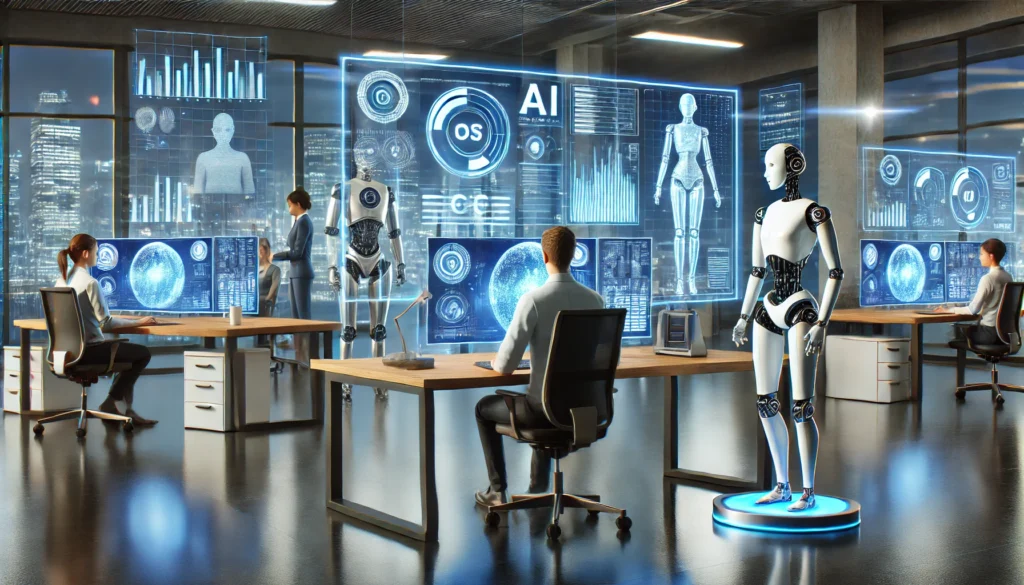The workplace is evolving faster than ever, thanks to artificial intelligence (AI) and automation. From chatbots handling customer service to algorithms managing investments, technology is transforming how we work—and what it means to stay employable. A 2024 McKinsey report predicts that 375 million jobs worldwide will be disrupted by automation by 2030. But don’t panic—this shift also creates opportunities for those who adapt. Here’s how to future-proof your career in the age of AI.
The Automation Wave: What’s Changing?
By the Numbers
- AI adoption has grown by 270% in the last four years (Gartner).
- 85% of CEOs say AI will significantly impact their industries by 2025 (PwC).
- 50% of tasks in manufacturing, retail, and logistics could be automated (World Economic Forum).
Jobs at Risk (and Why)
1. Repetitive Roles
- Examples: Data entry, assembly line work, basic accounting.
- Why: AI excels at predictable, rule-based tasks.
2. Middle-Skill Jobs
- Examples: Telemarketing, clerical work, inventory management.
- Why: Automation tools like RPA (Robotic Process Automation) handle these tasks faster and cheaper.
3. Driving and Delivery
- Examples: Truck drivers, delivery personnel.
- Why: Self-driving vehicles and drones are becoming mainstream.
Emerging Opportunities: Where Humans Thrive
1. AI and Machine Learning Specialists
- Why: Someone needs to build, train, and maintain AI systems.
- Skills Needed: Python, TensorFlow, data analysis.
2. Creative and Strategic Roles
- Examples: Content creators, marketers, UX designers.
- Why: AI can’t replicate human creativity or emotional intelligence.
3. Healthcare and Caregiving
- Examples: Nurses, therapists, elderly care.
- Why: These roles require empathy and adaptability—qualities machines lack.
How to Future-Proof Your Career
️ Upskilling Essentials
- Learn AI Basics: Platforms like Coursera and edX offer beginner-friendly AI courses.
- Master Data Literacy: Tools like Tableau and Power BI are invaluable for data-driven roles.
- Develop Soft Skills: Communication, teamwork, and problem-solving are irreplaceable.
Adaptability Tips
- Stay Curious: Follow trends on platforms like TechCrunch or Wired.
- Network Strategically: Join communities like LinkedIn Groups or Meetup to connect with industry leaders.
Tools to Stay Ahead
| Tool | Purpose | Why It’s Useful |
|---|---|---|
| LinkedIn Learning | Skill-building courses | Learn in-demand skills at your own pace. |
| Kaggle | AI and data science projects | Practice with real-world datasets. |
| FutureLearn | Career-focused certifications | Affordable courses from top universities. |
Expert Insights: Thriving in the AI Era
“The jobs of the future won’t just require technical skills—they’ll demand adaptability and a growth mindset.”
– Satya Nadella, CEO of Microsoft.
“Automation isn’t about replacing humans; it’s about augmenting our capabilities. Focus on what makes you uniquely human.”
– Fei-Fei Li, AI Pioneer and Stanford Professor.
Real-Life Success Stories
1. From Cashier to Data Analyst
Sarah, a former retail worker, used Google’s Data Analytics Certificate to transition into a high-demand tech role.
2. AI-Powered Entrepreneur
Jake, a graphic designer, learned AI tools like Canva’s Magic Design to automate repetitive tasks, freeing time for creative projects.
Read also Cyber Threats in Everyday Life: How to Protect Yourself
The Bottom Line
The future of work isn’t about competing with machines—it’s about collaborating with them. By embracing lifelong learning, honing uniquely human skills, and staying ahead of trends, you can turn automation into an opportunity, not a threat.


